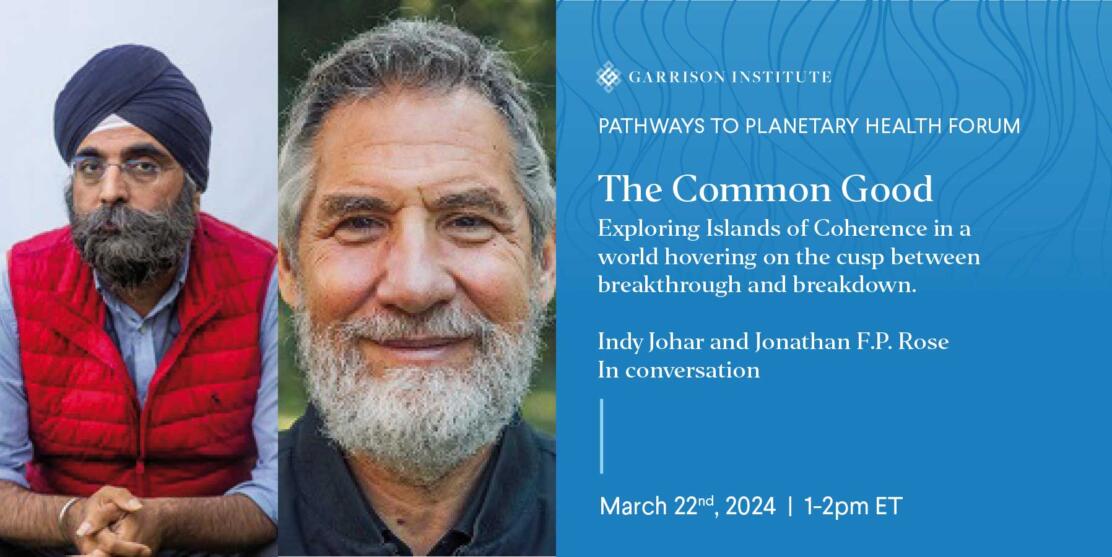Indy Johar on The Common Good and Exploring Islands of Coherence
On Friday, March 22, 2024, Indy Johar joined Garrison Institute co-founder Jonathan F. P. Rose for a conversation hosted by the Pathways to Planetary Health initiative.
Indy is co-founder of Dark Matter Labs and of the award-winning architecture and urban practice Architecture00. He is on the advisory board for the Future Observatory and is part of the committee for the London Festival of Architecture. He is currently a professor at RMIT University. Indy was awarded the London Design Medal for Innovation in 2022 and an MBE for Services to Architecture in 2023.
In their conversation, Indy and Jonathan explored how transforming the worldviews that underlie economic, governance, and policy systems can give rise to a world of mutual thriving.
Worldviews are often invisible, yet they’re encoded in the institutional and capital environments in which we reside. They deeply influence our lives by determining how we organize and see the world, including how we perceive and define ourselves (known in psychology as self-construal).
Cultures based on worldviews that see themselves as part of an integrated whole have different social systems and languages than cultures based on individuation. A society built from a worldview of separation will codify this separateness into reality, for example through private property defined by redline boundaries, or contracts that create an asymmetrical distribution of power.
Jonathan and Indy discussed how worldviews based on separation emerged long ago and led to people seeing the world as a collection of objects to be owned, perpetuating conditions for oppression and abuse. Some believe that facets of the polycrisis, such as growing inequality, human-induced climate change, biodiversity loss, and systemic racism, are outcomes of social institutions and systems designed out of separateness, individualism, control, and domination.
The scale of risks at a societal level means that pathways to transition are critical. To foster transformation, Indy cautioned that shifts through inner work are essential but insufficient on their own.
Indy proposed a challenge and opportunity to revolutionize not just inner and outer worlds, but also a middle space of systems that arise from worldviews and that normalize default behaviors. The entanglements and complexities in this middle space require us to relate with deep care and commitment to learning.
The conversation opened a new sense of what’s possible. Indy and Jonathan explored how awareness of entanglements can enable a phase shift in how we imagine ourselves and our relationships with the planet. Indy noted how domination and control are irrelevant approaches to organizing given the current state of the planet. Meanwhile, converging crises create new windows of opportunity for reimagining systems, such as legal mechanisms for land to become self-sovereign and new rounds of monetary innovation on the African continent.
Indy and Jonathan gently disrupted complacency with change making and offered a fresh look at economic, institutional, and societal systems. The dialogue reminded us that when in doubt, thinking like an ecosystem can be a pathway for aligning the well-being of human systems with nature.
This online event was part of a continuing series, the Garrison Institute’s Pathways to Planetary Health Forum.
Additional resources:
Life-Ennobling Economics article
Property & Beyond: Introducing a new part of the Dark Matter Labs ecosystem
